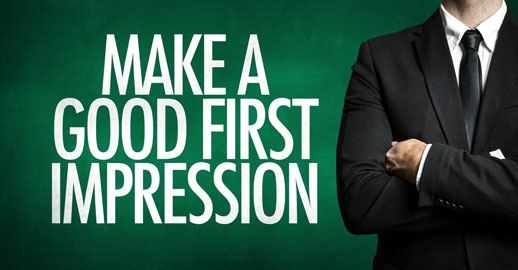
Dear Lawcrossing,
RB, Denver
Dear Lawcrossing,
Because my last boss was very well connected, I've gotten some interviews with some large firms who would not have
only take the top 10%. I am not getting any offers and I'm really frustrated. I think my interviewing style is OK. What
am I doing wrong?
CL, Chicago
Dear RB and CL,
Here is what is going on for both of you. The firms with whom you have been interviewing are not stupid; when an important client, or mucky-muck of any other stripe, calls and says, "Would you interview my friend/nephew/former secretary/summer intern for an associate position?" the firm is hardly going to respond with a guffaw and a "Yeah, right!" before hanging up the phone. Instead, the firm will say something like, "We'd be delighted to." You get scheduled for an interview, but unbeknownst to you, you have been red-flagged. That is, the lawyers with whom you interview will be told that you are "related to so-and-so" or you "have blackmail photos of so-and-so" (LawCrossing is just kidding, of course), or whatever your connection may be. What does this mean? It means that the firm believes that it is highly unlikely that your interview will result in further interviews, and-ultimately-an offer.
What do you do? You take that "highly unlikely" and figure out how to turn it to your advantage-with the help of LawCrossing, of course, and more importantly her friends who have the advice you need. Anne Stark Walker, Career Services Director at the University of Denver College of Law, and before that the hiring partner at a large law firm, says that "If your grades aren't what the firm normally seeks, be sure that you work what you do offer into the conversation. You can say, 'I know I'm not in the part of the class you normally take . . . ' and follow up with what you do have." Like what? As Anne Stark Walker reports, "It is always possible to wow them with personality and work experience. So if you have any work experience before or during law school, make the most of that. Firms are more and more conscious of how much it costs to train new associates, and the fact that they can't bill clients for training time. That puts pressure on new associates to hit the ground running. So if you can show them that, because you have prior work experience, especially servicing clients, that counts."
What if you don't have prior work experience? Says Walker, "Regardless of any experience you have, it's important to impress the firm with your maturity and savvy. The lawyers with whom you interview will be asking themselves: How do you handle yourself? Are you poised? Can you easily field questions? Can you carry the conversational ball without constantly needing to be prodded? Can you talk about things you've done by way of telling anecdotes?" What does all of this add up to, RB and CL? You can overcome not having phenomenal grades by showing great interpersonal skills. Anne Walker advises, "Show them that you are bright, energetic, and enthusiastic. You wouldn't be the first successful associate who originally got a foot in the door with a courtesy interview. The fact is that firms want 10 degrees more enthusiasm more than they want a top-10 student with no commitment. If you show that you are hungrier for the job, that is a point in your favor."
What if you can't get past the order-of-the-coif bias, even if you've got the interviewing skills of Larry King and Barbara Walters all rolled into one? As Anne Walker points out, "At the very worst, if you show enthusiasm and interview well, you can make great connections. If you click with a lawyer at a firm and they like you, they will pass your name onto somebody else, and that somebody else could well wind up making you an offer."
So what is it that tanks most courtesy interviewees? They don't do all of the things LawCrossing has just discussed, RB and CL. They hope against hope that the grades issue won't come up, or believe that if the firm doesn't bring up grades that the grades don't matter. They don't research the employer up front. They don't think of experiences, paid or volunteer, law-related or not, that show that they've got skills valuable to the firm or can learn those skills quickly. They don't look at the firm's web page or get familiar with what they do or smile or ask questions or rehearse answers to questions they know they'll get, all of which LawCrossing covers in the interviewing chapter of her fabulous bestseller, a well-know legal job search book.
But now that you know what you're up against, RB and CL, you know the prep work you have to do to turn those "connected" interviews into gold!
See the following articles for more information:
- 21 Major Interview Mistakes to Avoid at All Costs
- The Best Way to Prepare for a Job Search and Interviews
- How to Talk About Other Interviews in Your Interviews
- How to Answer the Tell Me About Yourself Interview Question
- How to Answer the Do You Have Any Questions for Me Interview Question




